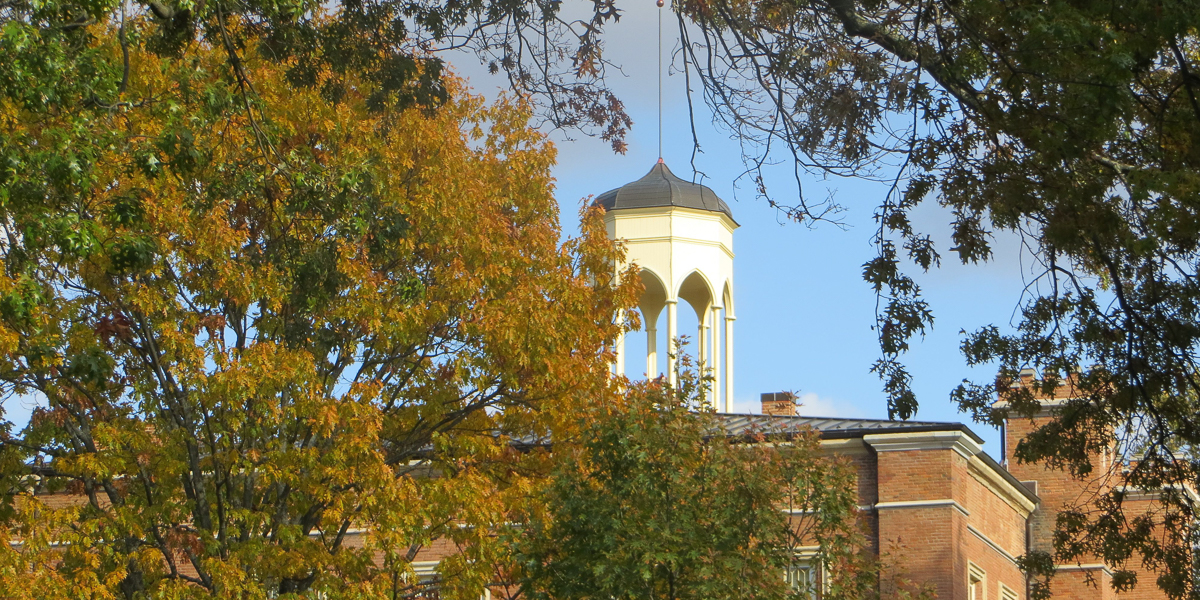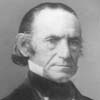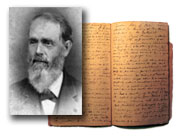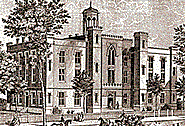

Venture Boldly

Knox College Library
2 E. South Street
Galesburg, IL 61401

Galesburg, Knox College and the Underground Railroad
The founders of Galesburg and Knox College played a central role in helping guide and transport fugitive slaves through Illinois to freedom. There are few communities that rival Galesburg in contributing to the anti-slavery cause and Underground Railroad activism.
George Washington Gale Galesburg and Knox College were founded by George Washington Gale (left photo), who before coming to Illinois had started a minister's training school, the Oneida Institute, in Whitesboro, New York. In 1843, Gale and other abolitionists from his new college town were indicted in Knox County court for aiding the escape of fugitive slaves. In 1837, Gale and several other local anti-slavery advocates established a local anti-slavery society and in 1839, they also created a youth anti-slavery society in Galesburg. Many of these same people were also instrumental in helping to establish the Illinois state anti-slavery society.
Galesburg and Knox College were founded by George Washington Gale (left photo), who before coming to Illinois had started a minister's training school, the Oneida Institute, in Whitesboro, New York. In 1843, Gale and other abolitionists from his new college town were indicted in Knox County court for aiding the escape of fugitive slaves. In 1837, Gale and several other local anti-slavery advocates established a local anti-slavery society and in 1839, they also created a youth anti-slavery society in Galesburg. Many of these same people were also instrumental in helping to establish the Illinois state anti-slavery society.
Jonathan Blanchard
Jonathan Blanchard, the second President of Knox College, was nationally recognized for his contributions to the anti-slavery crusade. Shortly after his arrival in Galesburg, he helped aid in the escape of fugitive Bill Casey. In 1854, Blanchard engaged Stephen Douglas in a heated debate in Knoxville, Illinois, about Douglas' creation of and support for the Kansas-Nebraska Act.
Susan Richardson
Susan Richardson, a runaway slave from southern Illinois, found her freedom in Galesburg in the fall of 1842. She resided in Galesburg for nearly 60 years and during the time she lived here became involved in the operation of the Galesburg Underground Railroad and helped establish the first black church in town.
Samuel G. Wright Among the few written records of the Underground Railroad in the area is the journal of the Reverend Samuel Wright (right photo), a Knox trustee from 1849 to 1872. Here is an entry from the journal from 1843:
Among the few written records of the Underground Railroad in the area is the journal of the Reverend Samuel Wright (right photo), a Knox trustee from 1849 to 1872. Here is an entry from the journal from 1843:
"February 6 … another fugitive from slavery came along, which makes 21 that have been through this settlement on their way to Canada."
The Wright diary is in the Knox College Archives in Seymour Library.
Phelps Barn
William J. Phelps was a Knox College trustee and farmer who lived close to Elmwood, Illinois. The barn on his farm was most likely used as an Underground Railroad signal station. When lanterns were lit in the attic of his barn, the glowing cross that he had carved at the top of the barn signified that it was safe for fugitive slaves to head northward.
Fugitive Slaves Escape on Real Railroads
After the CB&Q railroad reached Galesburg in December of 1854 and was extended to Burlington, Iowa, in 1855, and Quincy, Illinois, in 1856, runaway slaves traveled on railroad cars all the way to Chicago.
Barnabas Root
In 1863, Barnabas Root enrolled in the Knox College Academy and seven years later graduated from Knox College. He was one of the first blacks to receive a bachelor's degree in Illinois
Lincoln Douglas Debates
Located on the Knox College campus, Old Main (left photo) has been designated a national  historic landmark by the United States Department of the Interior. Seven debates were held by Abraham Lincoln and Stephen Douglas in their campaign for a seat in the United States Senate in 1858. Because the founders of Knox and Galesburg were profoundly anti-slavery, the debate at Knox presented a fitting time and place for Lincoln to make an issue of the morality of Douglas's position on slavery. Though Douglas won the senate seat in the November election, Lincoln's reputation following the debates helped to catapult his fame throughout the United States and set the stage for his election as President of the Unites States in 1860.
historic landmark by the United States Department of the Interior. Seven debates were held by Abraham Lincoln and Stephen Douglas in their campaign for a seat in the United States Senate in 1858. Because the founders of Knox and Galesburg were profoundly anti-slavery, the debate at Knox presented a fitting time and place for Lincoln to make an issue of the morality of Douglas's position on slavery. Though Douglas won the senate seat in the November election, Lincoln's reputation following the debates helped to catapult his fame throughout the United States and set the stage for his election as President of the Unites States in 1860.